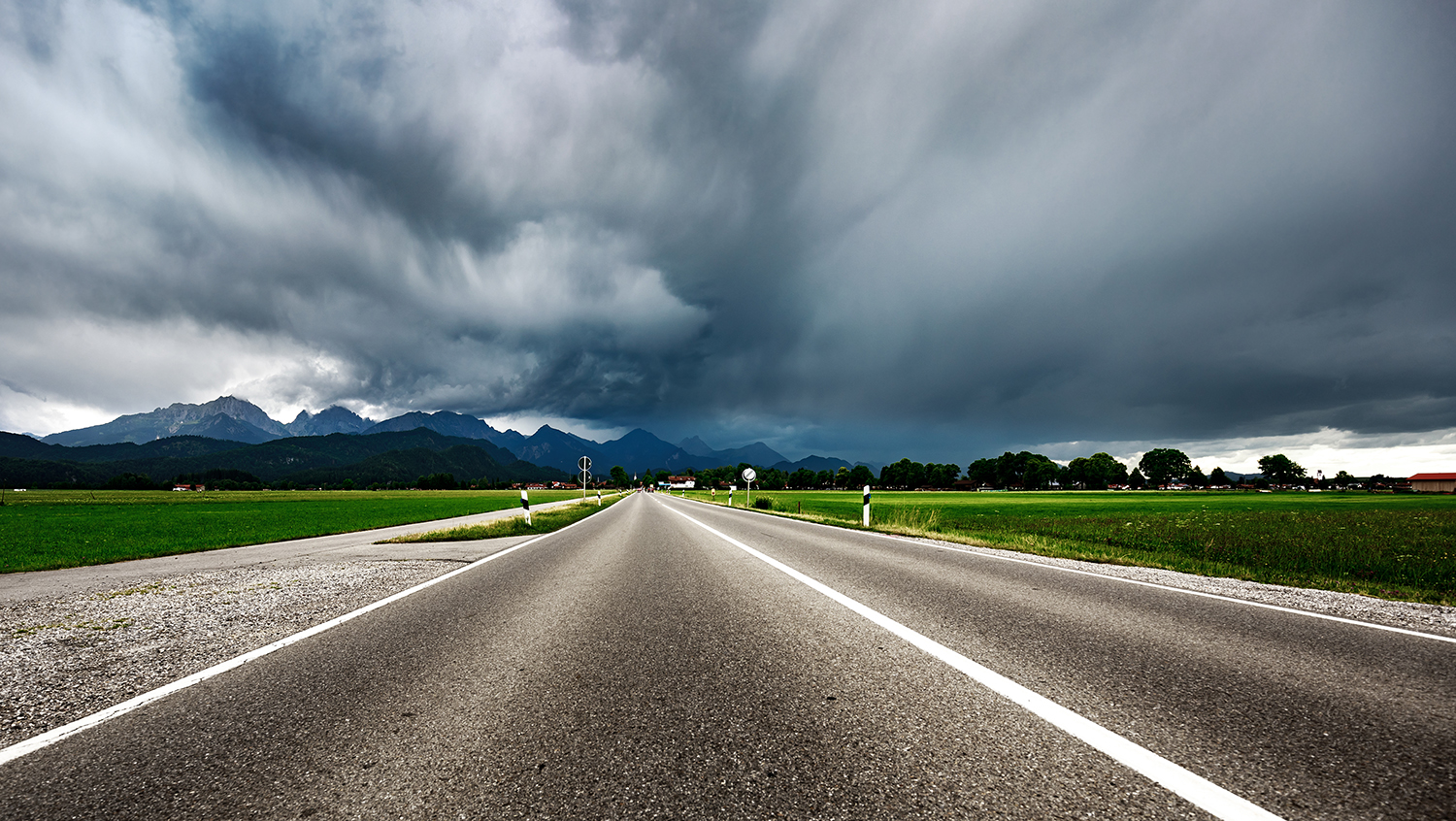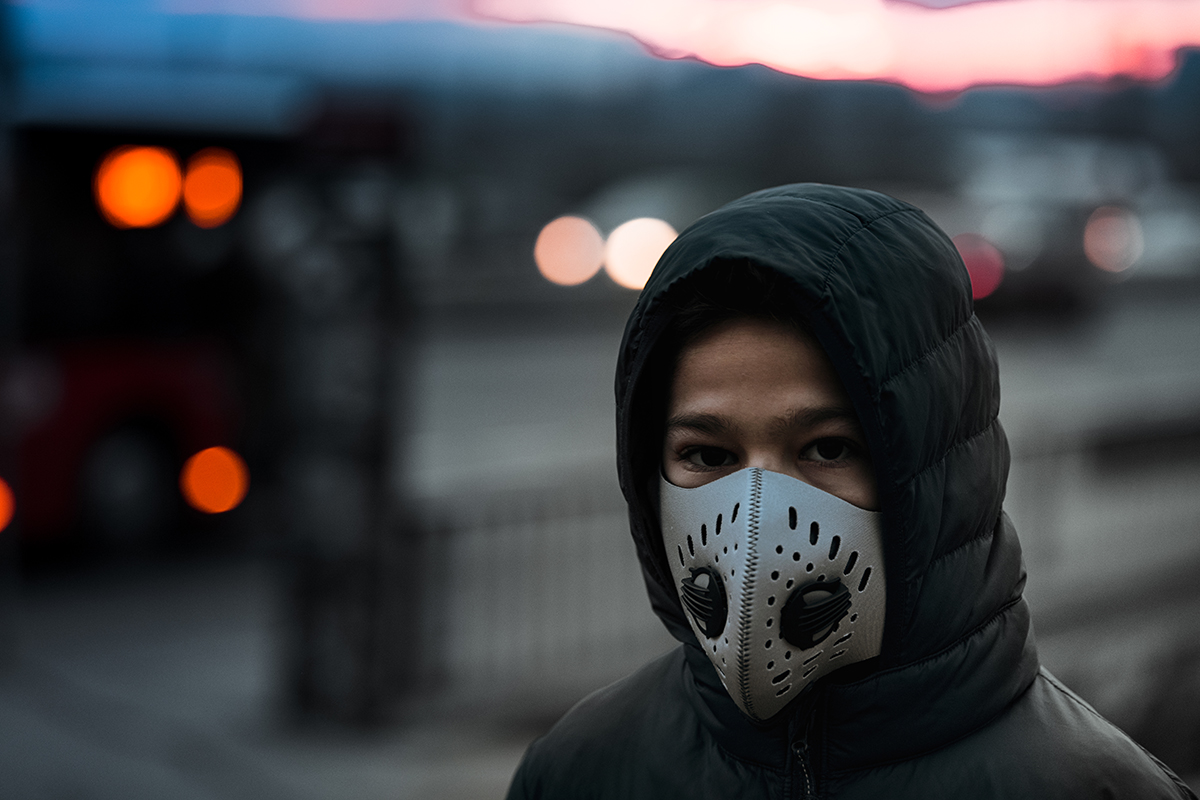
The road ahead for both COVID-19 and climate change is stormy, but with science and facts by our side we can find solutions to both.

The road ahead for both COVID-19 and climate change is stormy, but with science and facts by our side we can find solutions to both.
By Frank Sesno and Sarah DiCioccio
Staring into the abyss of the COVID chasm gives you a sinking feeling. Not only for our health now and in the future, not only for the people who’ve lost jobs, and marginalized communities that are so incredibly vulnerable – but also for the really big health crisis ahead, the one affecting the planet: climate change.
This is a weird moment when we talk about all the warnings we had, about the science we ignored or shrugged off, about the ticking time bomb we didn’t get to fast enough. The coronavirus sickens people. Climate change afflicts the planet.
So what are we to make of this? How can we learn from our current experience and apply these lessons to the next looming threat, recognizing that it will, by necessity, take a back seat until the current health emergency and economic crisis subside.
For decades, our world’s leaders have struggled to adequately respond to climate change. Despite advice from scientists, policymakers have been largely unable to balance the long-term wellbeing of the planet with immediate economic concerns.

The effects of COVID-19 have been devastating. The numbers are staggering. Globally, there have been more than 2 million cases and more than 152,000 deaths as of mid-April. I hate to pile on here, but climate change can be a mass killer as well. The World Health Organization (WHO) has come in for some searing criticism, but despite its bureaucratic and diplomatic shortcomings, there are well-trained, highly respected scientists and docs who work there. In 2018, the WHO released a report estimating that between 2030 and 2050, climate change could result in 250,000 additional deaths per year.
Like the doctors who studied and warned of pandemics, scientists have been issuing increasingly urgent warnings about the effects of climate change. In the United Nation’s sizzle video the report provocatively asks, “How much time is left?” But some influential world leaders, from Brazil’s Jair Bolsanaro to America’s President Trump, have questioned the legitimacy of climate science and tried to turn back the clock on climate action.
Maybe experience with the pandemic will change some influential minds. British Prime Minister Boris Johnson, whom COVID-19 sent to intensive care, was criticized for a slow response when the pandemic first surfaced. Johnson is considered by many a bit of a science skeptic. On climate change, the Prime Minister’s stance has wavered. His absence at a climate debate last year didn’t inspire confidence that he took the issue seriously. Well, now that he’s out of intensive care, maybe the world – and science – looks different. Staring into that abyss scares the hell out of you.
The mirroring responses to COVID-19 and climate change extend beyond government. Public opinion also has been partisan for each. Public opinion polling of COVID-19 in mid-March revealed that 68% of Democrats, but only 40% of Republicans, felt concerned that an immediate family member could contract the virus. Similar, though even deeper divisions, define the public’s attitudes toward the climate crisis. A February 2020 Pew Research Center poll found 78% of Democrats believe that climate change should be a top priority for the president but only 21% of Republicans are so inclined.
COVID-19 and climate change are two really big, really daunting challenges. They test humanity’s ability to think long term, assess risk, put our common future first, and make hard choices. Addressing them requires us to accept science, acknowledge facts, and resist manufactured debate and clickbait conspiracy theories.
Researchers are scrambling to produce tests that will quickly tell people whether they’ve got the virus. Scientists are racing to develop a vaccine. Countries are spending trillions of dollars to stabilize endangered economies. Similarly, climate change has inspired amazing new technologies, created a culture of sustainability, given rise to a powerful new generation of voices demanding action. We learn. We invent. We race the clock.
There is hope.
———
About the authors: Frank Sesno founded Planet Forward in 2009 and is the director of the George Washington University School of Media & Public Affairs. Sarah DiCioccio is a second-year graduate student at the School of Media and Public Affairs, where she focuses on digital advocacy and works as a graduate assistant.